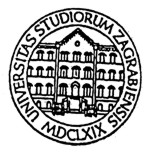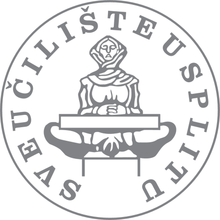
Drazen Pulanic gives tips on how to enjoy a vast and varied country
Canada is a magnificent country. The second largest country in the world, it has an area of nearly 10 000 000 sq km. Bordered on three sides by oceans - the Pacific, Atlantic, and Arctic - Canada possesses different terrain, from rainforests on the west coast to near desert conditions in the southern prairies, not to mention its amazing mountains. It is a northern country, but its climate varies dramatically - the winters can be long and cold, and the summers are often scorching. Canada's water resources are remarkable, and its huge lakes account for half of the world's fresh water. A mixture of nationalities and races brings many cultural influences to the Canadian identity; its population is often called "mosaic." Immigrants from every corner of the globe live together with Canada's native peoples - Indian and Inuit - and people descended from the two main streams of early settlement, English and French. Canada's largest province, French speaking Quebec, is the seat of French culture in Canada.

Health problems
Cancer represents a major health problem in Canada. It is estimated that more than one third of all Canadians will have some form of cancer in their lifetime; more than half of all new cases occur after age 65. Among men, at least 50% of new cases are attributable to prostate, lung, and colorectal cancer; among women, a similar proportion is accounted for by breast, colorectal, and lung cancer. The proportion of elderly people in the Canadian population has increased in recent years. Consequently, there has been an increase in the number of deaths from stroke and ischaemic heart disease, which is expected to continue for the next 15 years.
Health care in Canada
The healthcare system in Canada has changed a lot in recent years, owing to severe cuts in provincial (and federal) budget expenditure on health care. Seven hospitals in Montreal have been closed down in the past four years, and alternatives for primary care have not yet been created. As part of the streamlining of hospital care, the five main teaching hospitals in Montreal are being reorganised into the McGill university health centre, which should create a new "super hospital" within four to five years.
The standard of health facilitities in Canada is similar to that of the United States, although the number of hospitals and general practitioners per 1000 head of population varies greatly from region to region. If you are travelling to more remote northern areas of Canada, you should carry a first aid kit, although all provinces have an air ambulance service.
Some practical advice
A lot of useful information about Canadian electives can be found on the internet. Try logging on to http://www.mcgill.ca.
Immunisation against tetanus is advised for visitors. Hepatitis B is endemic, and the incidence of tuberculosis has increased recently in groups at high risk, but inter-national travellers rarely face greater health risks than those present in their own country. Visitors working in hospitals, where the protection of public health is essential, may be required to have a medical examination, even if employment is temporary. Check with the Canadian consulate or your own embassy for further information.
Get hold of an international student card, because you can use it to obtain several student discounts, including discounts on flights and international health insurance. Private health insurance up to the value of C$50 000 is essential as hospital charges can mount up, with expenses of US$650 per day, often with a 30% surcharge for non-residents. If you plan to visit the United States and then go back to Canada, you will need a multiple Canadian visa--if citizens of your country are required to get a Canadian visa--together with an American visa.
Useful addresses
•British High Commission, 80 Elgin Street, Ottawa, Ontario K1P 5K7, Tel: +1 613 237 1530
•Department of Health, Journal Tower South, 365 Laurier Avenue, West Suite 1406, Ottawa, Ontario K1A 0K2, Tel: +1 613 992 4581
Drazen Pulanic, medical student, University of Zagreb, Zagreb, Croatia
studentBMJ 2000;08:45-88 March ISSN 0966-6494
http://archive.student.bmj.com/issues/00/03/life/73.php
|









